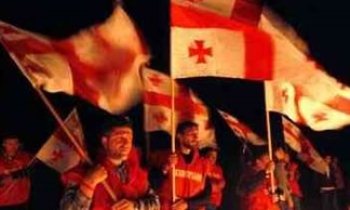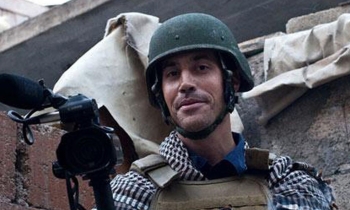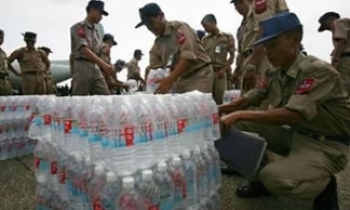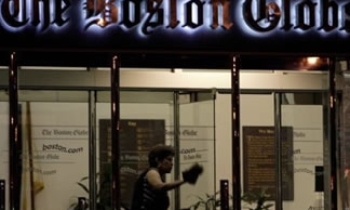Nine years after King Hamad bin-Issa al-Khalifa’s installation as head of state of Bahrain, the Gulf island nation is yet to implement the legislative reforms that it has been promising for several years.
While Bahraini journalists are able to speak out a bit more than their colleagues in many other Gulf countries, the press freedom situation is far from satisfactory. No journalist has been imprisoned since March 1999, but the press still has many problems. Restrictive laws and veiled pressure from officials too often force journalists to censors themselves.
The findings are from a just-released Reporters sans frontières (RSF) report of a fact-finding trip to Bahrain, coinciding with the ninth anniversary of al-Khalifa’s installation. The team visited capital Manama from February 9-13, and met government officials, opposition politicians, journalists, and civil society representatives.
Government officials seem to be sincere in their desire help the kingdom’s media to evolve, but the long-awaited reforms have still not materialised, the report regretted. They include the reform of the Press and Publications Act, otherwise known as Law No 47. No fewer than 18 press offences are punishable under this law, which took effect in October 2002, and are often defined in terms that allow a very broad interpretation.
“Law No 47 does not give our work the necessary guarantees,†journalist Sawsan Al-Shaer told RSF.“As well as providing for prison sentences, the law allows recourse to criminal law and any other law to prosecute journalists,†she said. “What is the point of drafting a special law for our profession if the judges can use other laws to convict journalists.†After the law took effect, the authorities agree to create a committee including journalists, representatives of the Bahrain Journalists Association and information ministry representatives in order to recommend amendments to the law. Al-Shaer, who was a member of the committee, said she did not know what had become of the recommendations.
The Bahraini journalists that the RSF team met continue to be sceptical about the timetable and content of reforms. Some do not hesitate to talk of a “reduction in freedoms†since 2001, the year that the National Action Charter was adopted. Few of them hope for a complete decriminalisation of press offences. And even if they recognise that they can be a bit more outspoken that their colleagues in other countries in the region, they say the state has other means than the law to put pressure on the media.
RSF has now urged authorities not to postpone fulfilling their promises to allow more press freedom. Reform of the press law must not be abandoned for lack of political determination or because of pressure from the radical fundamentalists who form the majority in parliament.
King Hamad has on several occasions expressed a desire to decriminalise press offences. Kuwait is so far the only Gulf nation to have taken this step. RSF thinks the Bahraini authorities should go further and put an end to the state’s monopoly of broadcasting. RSF has also urged the information ministry to show more restraint in its censorship of the Internet. Access to many websites is banned. It should be the job of the courts, not the government, to regulate the Internet.
As in neighbouring countries, Bahrain’s media owners and journalists censor themselves heavily. Mansoor Al-Jamri, the editor of Al-Wasat, a daily that supports the Shiite political movement Al-Wifaq, said the number of complaints brought against the media by the state would be much greater if journalists did not avoid certain subjects.
The most recent example was the media’s restrained coverage of demonstrations that shook the country in December and left one person dead. “There were further clashes between security forces and the dead man’s relatives on the day of the burial,†Ahmed Al-Aradi of Al-Waqt told RSF. “Many were wounded and several photographers, including myself, provided our newspapers with photos. But the next day, I did not see any of the photos in the papers.â€









